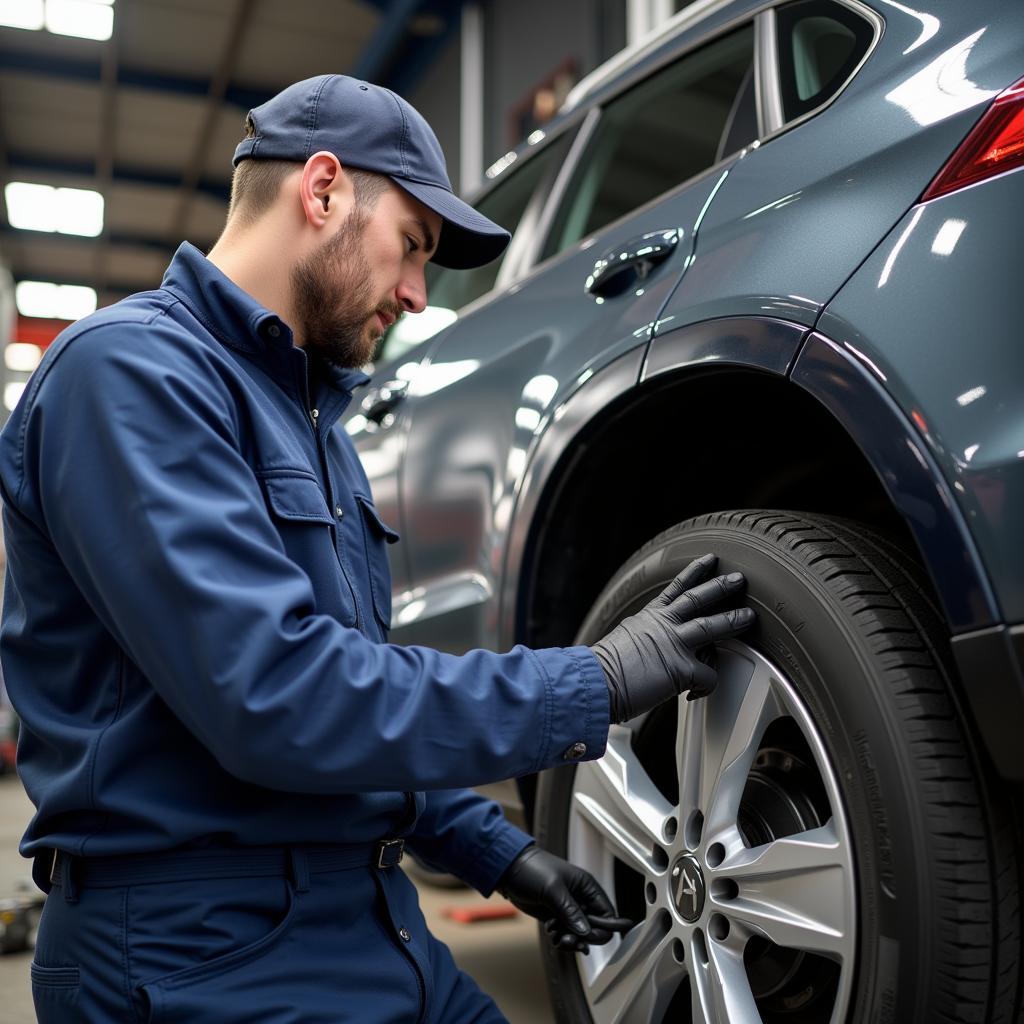Maintaining your car is crucial to ensure its longevity, safety, and performance. However, the cost of car maintenance can vary greatly depending on several factors, making it challenging to determine how much to budget for. This comprehensive guide will walk you through everything you need to know about car maintenance costs, helping you make informed decisions about your vehicle’s upkeep.
Understanding the Cost of Car Maintenance
Car maintenance expenses can be categorized into two main types: scheduled maintenance and unscheduled repairs.
Scheduled Maintenance
Scheduled maintenance involves routine services performed at specific intervals, as recommended by your car manufacturer or outlined in your owner’s manual. These services help prevent major issues and ensure your car runs smoothly.
Here are some common scheduled maintenance tasks and their associated costs:
- Oil change: $30-$100
- Tire rotation: $20-$50
- Air filter replacement: $20-$50
- Brake pad replacement: $100-$300
- Spark plug replacement: $100-$300
- Fluid checks and top-offs: $50-$100
Unscheduled Repairs
Unscheduled repairs are unexpected repairs that arise from wear and tear, accidents, or other unforeseen circumstances. These can be more expensive and unpredictable, requiring you to factor in potential repair costs when budgeting.
Some common unscheduled repairs include:
- Engine repair: $500-$5,000
- Transmission repair: $1,000-$4,000
- Suspension repair: $200-$1,000
- Bodywork repair: $500-$5,000
- Electrical system repair: $200-$1,000
Factors Affecting Car Maintenance Costs
Several factors contribute to the overall cost of maintaining your car:
- Vehicle age and mileage: Older cars tend to require more frequent maintenance and repairs due to increased wear and tear.
- Make and model: Some vehicles are inherently more expensive to maintain than others.
- Driving habits: Frequent long-distance driving, aggressive driving, and driving in harsh conditions can accelerate wear and tear, leading to higher maintenance costs.
- Location: Labor rates and parts prices can vary significantly by location.
- Type of repair: Basic maintenance tasks are typically less expensive than major repairs.
- Choice of repair shop: Independent repair shops often offer lower prices than dealerships, but it’s essential to choose a reputable shop.
How to Estimate Your Car Maintenance Budget
Here are some tips for estimating your car maintenance budget:
- Review your owner’s manual: Your owner’s manual provides a detailed schedule of recommended maintenance tasks.
- Track your expenses: Keep a log of all your car maintenance costs, including scheduled services and unscheduled repairs.
- Get quotes from multiple repair shops: Obtain quotes from several repair shops before making a decision.
- Consider a maintenance plan: Some dealerships and car manufacturers offer maintenance plans that can help you budget for routine services.
- Set aside a monthly or annual budget: Estimate your annual car maintenance costs and allocate funds accordingly.
Tips for Keeping Maintenance Costs Down
- Perform basic maintenance yourself: Simple tasks like oil changes, tire rotations, and air filter replacements can be done at home to save money.
- Buy parts online: You can often find affordable car parts online, but ensure they are compatible with your vehicle.
- Shop around for the best deals: Compare prices for car maintenance services and parts before making a purchase.
- Maintain your car regularly: Following a regular maintenance schedule can prevent major problems and costly repairs.
- Drive responsibly: Avoid aggressive driving and maintain a moderate speed to minimize wear and tear.
What to Do When Facing High Maintenance Costs
If you are faced with high car maintenance costs, consider these options:
- Negotiate with the repair shop: Try to negotiate the price of repairs, especially if you are a regular customer.
- Explore alternative repair options: Consider visiting an independent repair shop or using online resources to find affordable repair options.
- Trade in your car: If the maintenance costs are exceeding the value of your car, consider trading it in for a newer model.
- Shop for a more affordable car: If your current vehicle is expensive to maintain, consider purchasing a more affordable and reliable model.
Conclusion
Determining how much to spend on car maintenance can be a challenge, but understanding the factors that influence costs and following our tips can help you manage your budget effectively. By prioritizing regular maintenance, shopping around for the best deals, and taking preventative measures, you can ensure your car stays in top condition while minimizing your expenses.
Remember, investing in regular car maintenance not only ensures the longevity of your vehicle but also enhances safety and performance.
If you have any questions or need assistance with your car maintenance needs, please contact AutoTipPro at +1 (641) 206-8880 or visit our office at 500 N St Mary’s St, San Antonio, TX 78205, United States.
FAQ
Q: What are some signs that my car needs maintenance?
A: Common signs include warning lights on the dashboard, unusual noises, decreased fuel efficiency, and fluid leaks.
Q: How often should I get an oil change?
A: Follow the recommendations in your owner’s manual, which typically range from 3,000 to 10,000 miles.
Q: Is it worth it to buy a maintenance plan?
A: Maintenance plans can be beneficial for budgeting purposes and providing peace of mind, but they are not always necessary. Evaluate your individual needs and compare plans to determine if they are suitable for you.
Q: Can I do car maintenance myself?
A: Basic maintenance tasks like oil changes and air filter replacements are relatively straightforward and can be done at home. However, for more complex repairs, it is advisable to consult a qualified mechanic.
Q: How can I find a reputable repair shop?
A: Ask for recommendations from friends and family, research online reviews, and consider shops that offer warranties on their repairs.





Leave a Reply